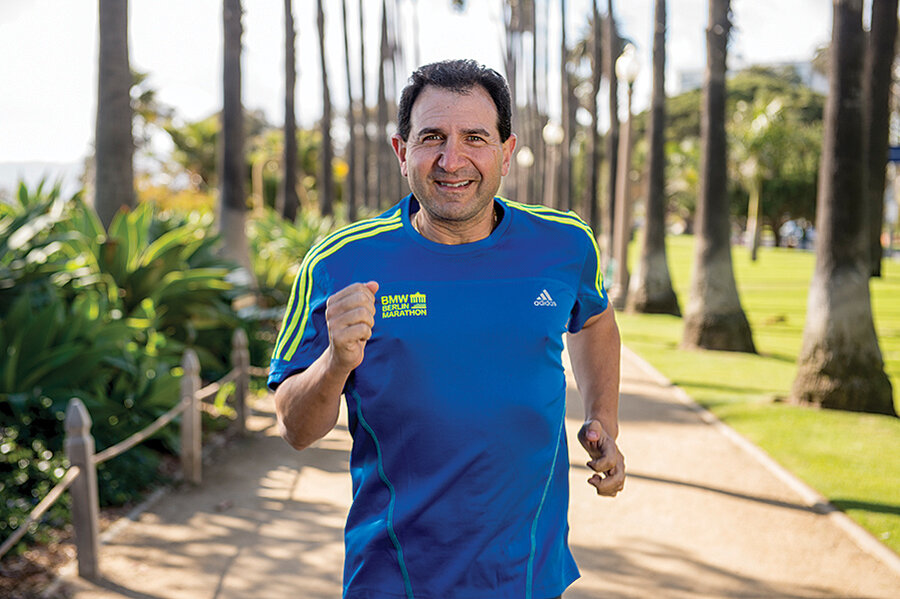Investment consultant Mark Minichiello has taken part in eight marathons since he started running in 2011, including in Rome ("breathtaking") and Berlin ("amazing"). Now, he has a word for what it will be like when he finally lines up for the "granddaddy marathon of them all."
"That word is 'surreal,' meaning you'll have to pinch me to make sure I'm really doing this," says the president of Quincy Cass Associates from his 14th-floor office alongside one of Los Angeles's busiest freeways.
He moved here in 2004, but grew up in the Boston suburb of Revere. When he was a first-grader, he and buddy Bobby Catinazzo planned to run the Boston Marathon together one day.
Later on, he didn't think he could run 26.2 miles. But when his wife finished the L.A. Marathon in 2010, he was inspired to try.
Last year, with some marathons already under his belt, the news reports on April 15 lit a fire under him. "Now I was sure 2014 had to be the year" for Boston, he says.
On Marathon Monday, Mr. Minichiello will be running with a flag (security permitting) that both represents his training group, the Los Angeles Roadrunners, and shows the group's support for the Boston Athletic Association (BAA), which organizes the race.
He is running as part of a charity team for Boston Children's Hospital, which jumped into action after a reported nine children were injured by the bombs last year.
Yes, Mr. Catinazzo will be running the race, too. And Minichiello's dad, who still lives in Revere, plans to attend and cheer.
"Running a marathon requires months and months of training, and a lot of people were prevented from finishing last year after investing their time and effort," he says. "Being able to follow through this year will be an individual and collective triumph."
– Daniel B. Wood, staff writer








